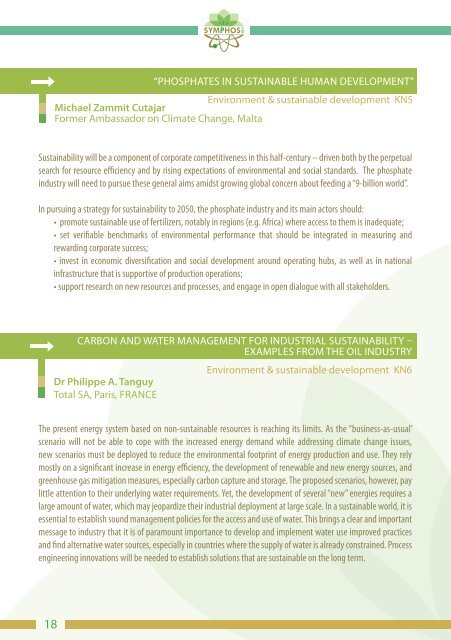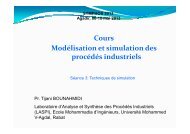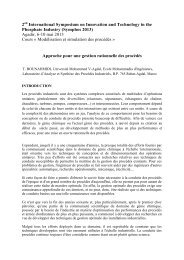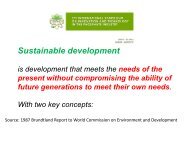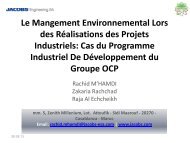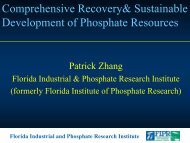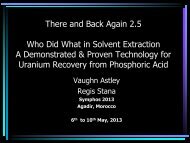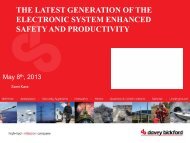Abstract SYMPHOS 2011
Abstract SYMPHOS 2011
Abstract SYMPHOS 2011
Create successful ePaper yourself
Turn your PDF publications into a flip-book with our unique Google optimized e-Paper software.
Environment & sustainable development KN5<br />
Michael Zammit Cutajar<br />
Former Ambassador on Climate Change, Malta<br />
Sustainability will be a component of corporate competitiveness in this half-century – driven both by the perpetual<br />
search for resource efficiency and by rising expectations of environmental and social standards. The phosphate<br />
industry will need to pursue these general aims amidst growing global concern about feeding a “9-billion world”.<br />
In pursuing a strategy for sustainability to 2050, the phosphate industry and its main actors should:<br />
• promote sustainable use of fertilizers, notably in regions (e.g. Africa) where access to them is inadequate;<br />
• set verifiable benchmarks of environmental performance that should be integrated in measuring and<br />
rewarding corporate success;<br />
• invest in economic diversification and social development around operating hubs, as well as in national<br />
infrastructure that is supportive of production operations;<br />
• support research on new resources and processes, and engage in open dialogue with all stakeholders.<br />
18<br />
Dr Philippe A. Tanguy<br />
Total SA, Paris, FRANCE<br />
“PHOSPHATES IN SUSTAINABLE HUMAN DEVELOPMENT”<br />
CARBON AND WATER MANAGEMENT FOR INDUSTRIAL SUSTAINABILITY –<br />
EXAMPLES FROM THE OIL INDUSTRY<br />
Environment & sustainable development KN6<br />
The present energy system based on non-sustainable resources is reaching its limits. As the “business-as-usual’<br />
scenario will not be able to cope with the increased energy demand while addressing climate change issues,<br />
new scenarios must be deployed to reduce the environmental footprint of energy production and use. They rely<br />
mostly on a significant increase in energy efficiency, the development of renewable and new energy sources, and<br />
greenhouse gas mitigation measures, especially carbon capture and storage. The proposed scenarios, however, pay<br />
little attention to their underlying water requirements. Yet, the development of several “new” energies requires a<br />
large amount of water, which may jeopardize their industrial deployment at large scale. In a sustainable world, it is<br />
essential to establish sound management policies for the access and use of water. This brings a clear and important<br />
message to industry that it is of paramount importance to develop and implement water use improved practices<br />
and find alternative water sources, especially in countries where the supply of water is already constrained. Process<br />
engineering innovations will be needed to establish solutions that are sustainable on the long term.


